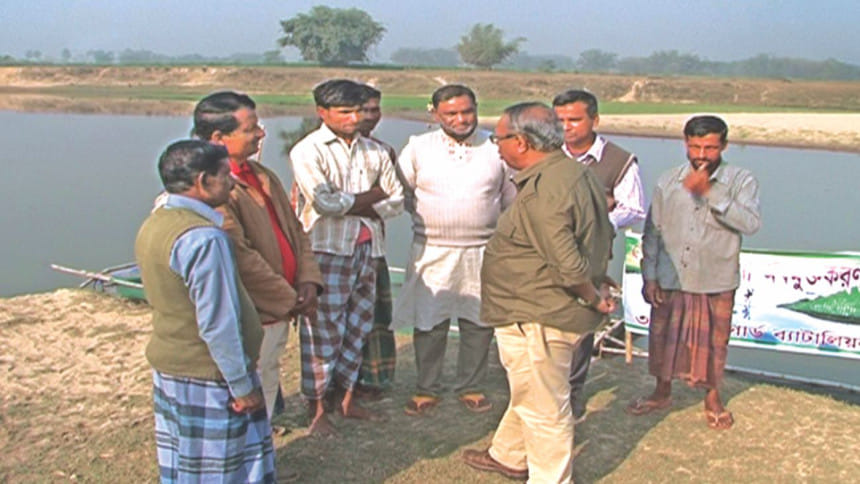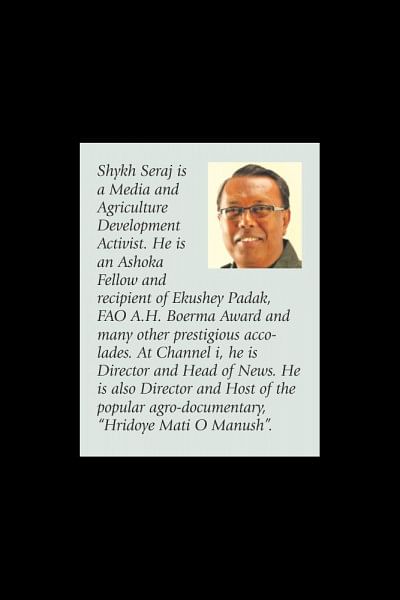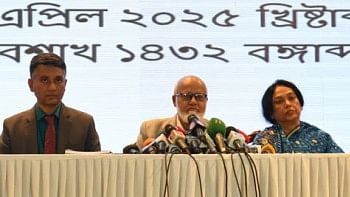Farming changes the border

It was 19th of November, 2014. Twenty two year old Shah Alam, only son of Sher Ali from Dinajpur, died being shot by Indian Border Security Force when he, along with others, was bringing in cows across the border illegally. We have seen such news often in newspapers and television before. However, it's really shattering for the families who lost their relatives. Day labourer Sher Ali's dreams are shattered.
However, the situation of this area has changed. People in the area finally realized that bringing goods by illegally crossing the border cannot be an occupation. Everyone started working hard for productive works to make a living. Their livelihood changed dramatically. Let me tell you how.
Almost a year back, I went to visit Thakurgaon BGB 30 Battalion's Betka BOP camp on an interesting invitation. Betka village is under Haripur upazila. You all know BGB (Border Guard Bangladesh) is our border security force. Recently, to develop Bangladesh's socio-economic state, they are participating in various activities alongside protecting our borders. The people who live around mainly make a living by doing agricultural works. However, they do get involved with many criminal activities too. Now, alongside various activities to eradicate poverty from community, works are also being done to get these people involved with some development agendas. For example, once they never even dreamt of having electricity here. However, through solar and other technologies, they are getting electricity. Therefore, their standard of living is developing gradually. I will tell you the diversified developments in the border area and describe how their socio-economic state has developed and how BGB played a key role behind all this progress.
The then commanding officer of BGB 30 Battalion, Lt Col Tushar Bin Yunus greeted me and my team.
He shared his experience of seeing from up close the change in the region.
"People used to live in darkness, I mean they didn't have electricity. They didn't have electricity for 18 hours," said Lt Col Tushar.
"We provided them light, not just for electricity but for spreading knowledge.
They were inspired to take to farming as profession and many have left their past for a better future," he added.
They moved forward focusing on multipurpose agriculture. The initiative is named Alokito Shimanto (enlightened border). "Stop border crime and live by hard work" - is the motto to spread throughout the communities living across the borders.
"We worked hard to make them aware and the initiative gradually yielded results as the people were shown your agricultural documentaries," said the Lt Col.
"How much did you earn earlier?" I asked Jabbar, who was involved in smuggling once.
"For each cow, I used to get Tk 500 but life risk was involved," he replied.
"I am currently working with a fisheries project here. Some of us started a fish farm in 2016," he gladly added.
There was a time when border meant only smuggling, human trafficking and above all anything related to the word 'illegal'. People are gradually getting out of these. Moreover, behind this change, agriculture and its crop diversity is playing a great role. In the past, not many crops used to be grown here. Now, you'll see abundance of crops and flourishing of agriculture.

Over the Nagor river, BGB has built a bamboo bridge and it has extremely helped the rural community to move from one side to the other. This infrastructural development has also helped farmers to transport their agricultural goods easily to the nearby market. Indeed, lives of many have developed with the help from agricultural offices and BGB and the efforts of general people.
It is very heartening to see children going to school, people getting electricity and gas, growing diversified vegetables and crops. The livelihood has remarkably changed.
Dear readers, we are surrounded by Indian territory. From government and private surveys and research, we see that border area people are mostly indolent. They have high tendencies of doing criminal activities too. Many keep themselves involved in risky illegal activities. For this reason, they cannot think about a stable family and work life. The situation of Thakurgaon's border was like this as well. However, today, you can't find any indolent person here. He who has a land is involved in agriculture. He who doesn't have a land works on someone else's land by taking a lease. Many have established various farms. Still, the locals face capital crisis. Poor and grassroots farmers could make themselves self-reliant faster if they get funding help. I believe this example of Thakurgaon border will be followed in the country's other border areas too.

 For all latest news, follow The Daily Star's Google News channel.
For all latest news, follow The Daily Star's Google News channel. 



Comments